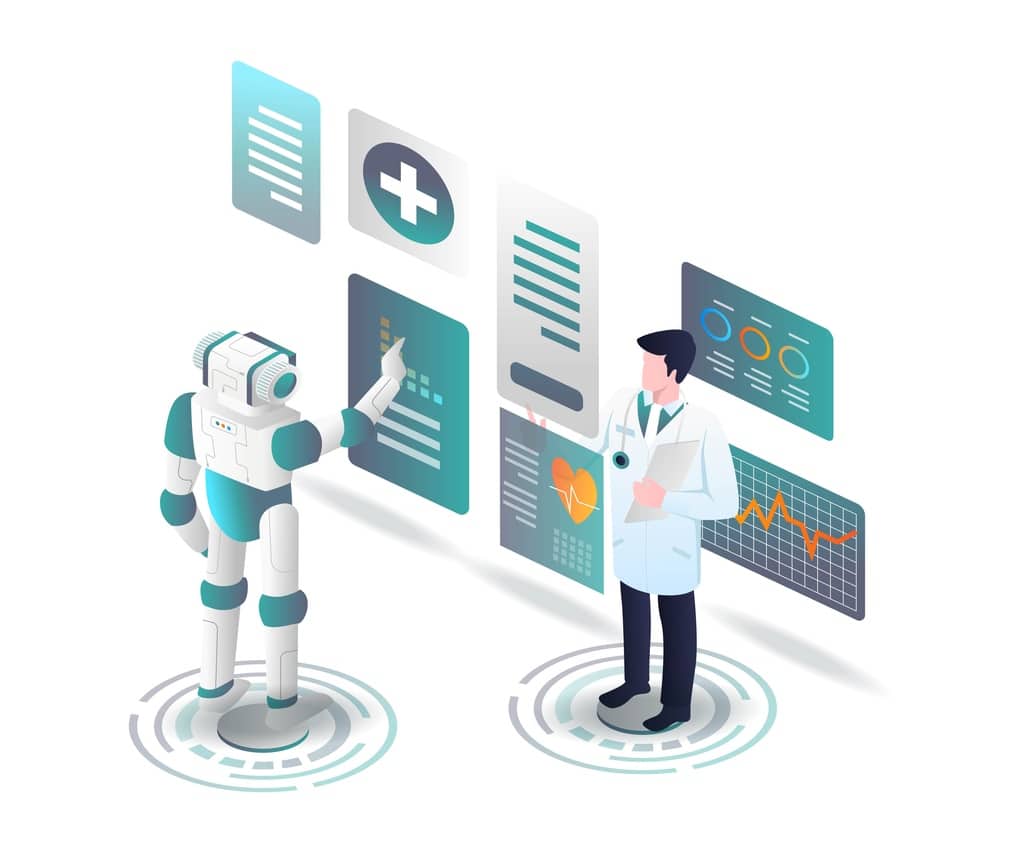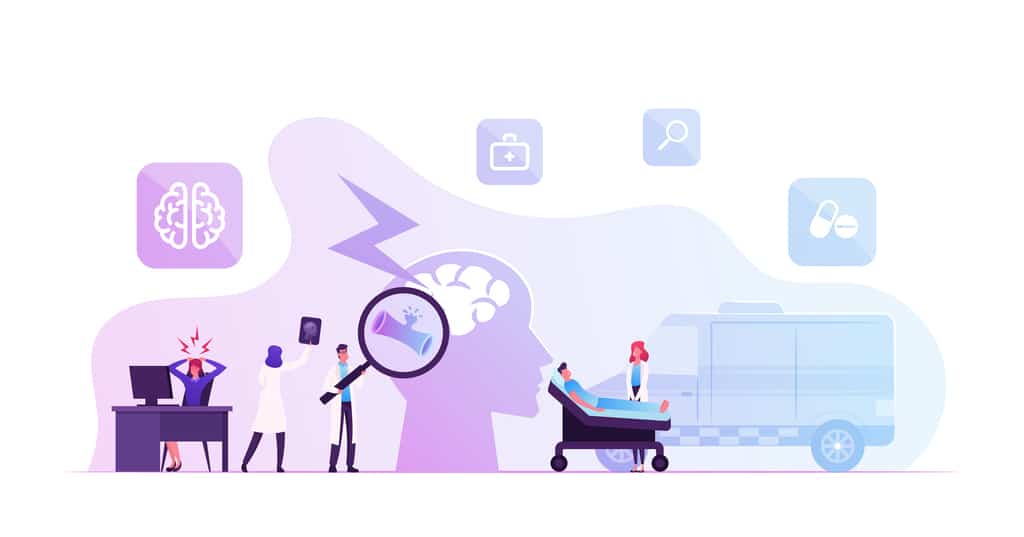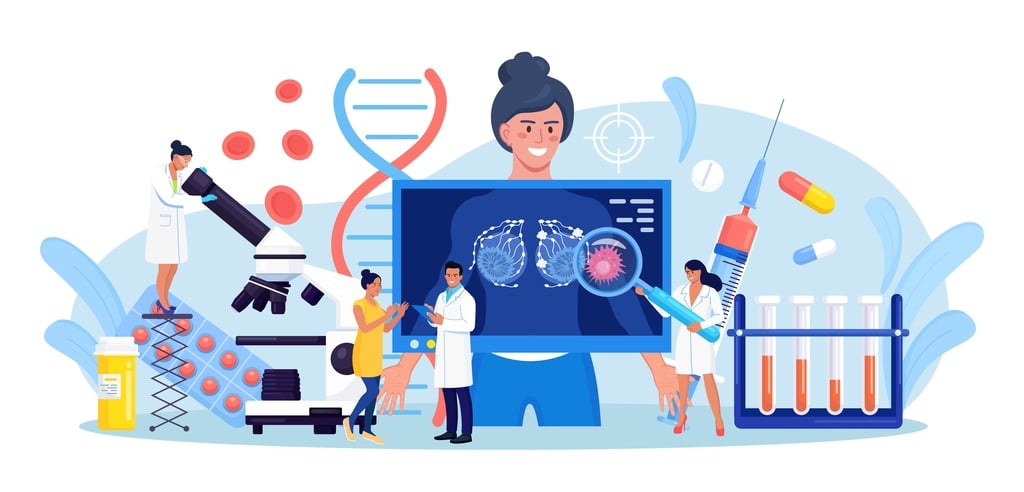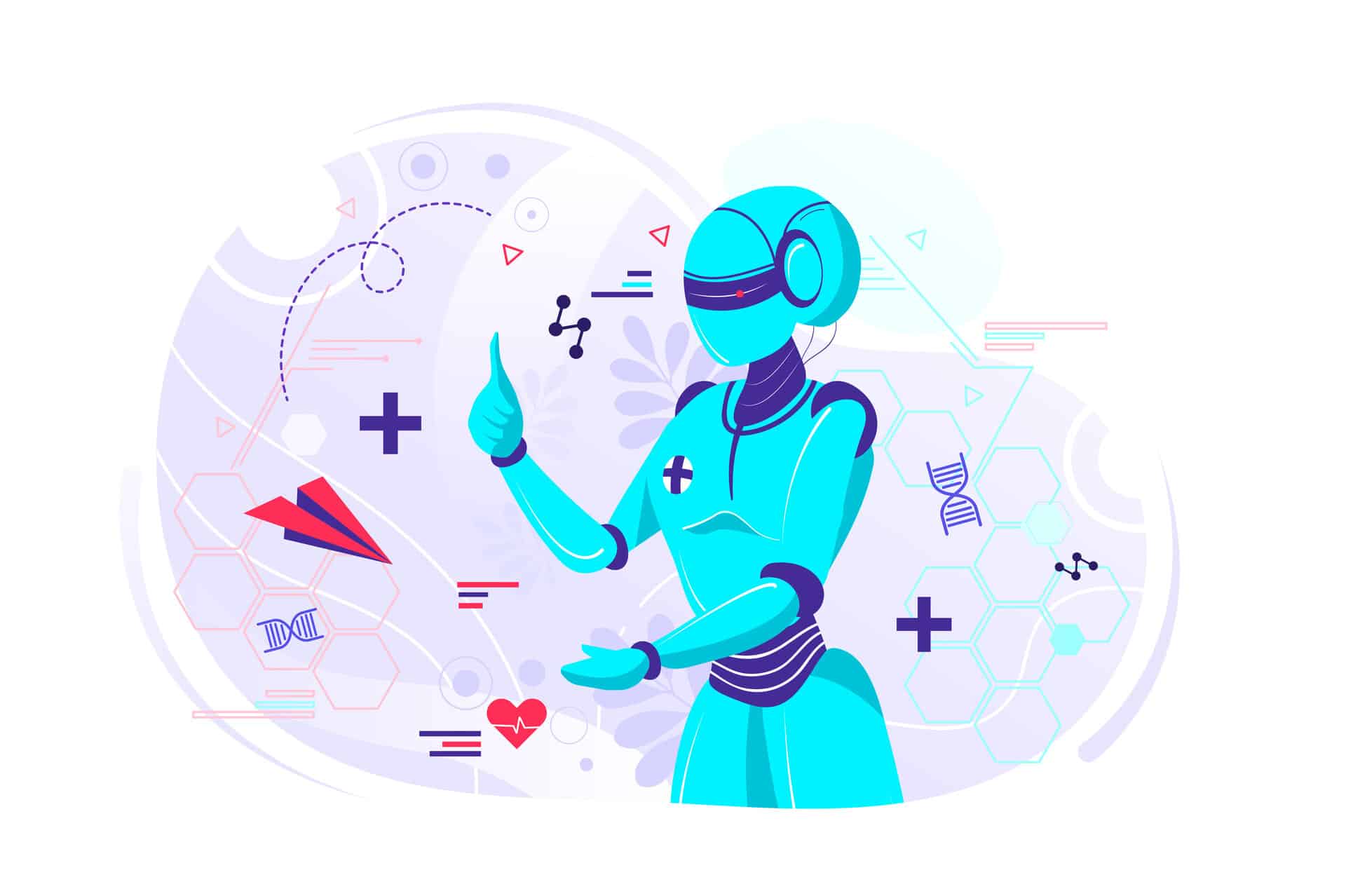ChatGPT is an AI-powered chatbot that is revolutionizing the way healthcare providers communicate with patients.
With its advanced technology, ChatGPT can streamline workflows, improve patient outcomes, and reduce administrative costs.
This technology is a game-changer for the healthcare industry, as it provides an efficient, convenient, and personalized solution for patients.
Improved Communication with Patients
One of the primary benefits of ChatGPT is its ability to improve communication with patients. ChatGPT is available 24/7, so patients can get the care they need at any time, without waiting for office hours.
This accessibility is especially important for patients who have chronic conditions and need immediate assistance. Furthermore, ChatGPT is equipped with multilingual capabilities, making it easier for patients who don’t speak English as their first language to get the care they need.
ChatGPT’s personalized responses can help patients feel more comfortable and understood, leading to better overall health outcomes.
24/7 Availability:
ChatGPT for Healthcare ensures that patients have access to medical assistance around the clock.
With the use of this technology, patients can easily communicate with healthcare professionals at any time of the day, even outside of regular office hours.
This 24/7 availability can be especially useful in emergency situations where time is of the essence.
Multilingual Capabilities:
ChatGPT for Healthcare is designed to be multilingual, which makes it an ideal solution for healthcare providers with a diverse patient population.
The technology supports several languages, making it easy for patients to communicate their symptoms and concerns, regardless of their native language.
This feature ensures that language barriers do not hinder effective communication between patients and healthcare professionals.
Personalized Responses:
ChatGPT for Healthcare uses advanced algorithms to provide personalized responses to patients.
The technology can analyze patient data and provide tailored advice and recommendations based on their individual needs.
This feature not only enhances the patient experience but also helps healthcare professionals provide more accurate diagnoses and treatment plans.
Efficient Appointment Scheduling
ChatGPT can automate the appointment scheduling process, reducing administrative burdens on healthcare providers.
Patients can book appointments in real-time, and ChatGPT can check the provider’s availability to suggest the best time slots.
Additionally, patients can receive customized reminders for their appointments, reducing no-shows and late cancellations.
This not only saves time but also ensures that patients receive the care they need in a timely manner.

Automated Booking:
ChatGPT for Healthcare allows patients to schedule appointments automatically through an online platform.
This feature eliminates the need for phone calls and reduces wait times for patients.
Patients can book appointments at their convenience, and healthcare professionals can optimize their schedules without the need for additional staff resources.
Real-Time Availability:
ChatGPT for Healthcare provides real-time availability information, allowing patients to choose appointments that fit their schedules.
The technology can synchronize with healthcare professionals’ calendars and update appointment availability in real-time, ensuring that patients always have access to up-to-date information.
Customizable Reminders:
ChatGPT for Healthcare can send automated appointment reminders to patients via text message or email.
Patients can choose their preferred reminder method and customize the frequency of reminders.
This feature helps reduce the number of no-shows and ensures that patients arrive on time for their appointments.
Seamless Medical Record Access
ChatGPT can quickly retrieve patients’ medical records, allowing healthcare providers to make informed decisions quickly.
ChatGPT is HIPAA compliant, ensuring that patient data is kept secure and confidential.
With ChatGPT, providers can access medical records from multiple sources and streamline the decision-making process.
Quick Retrieval:
ChatGPT for Healthcare allows healthcare professionals to quickly access patient medical records, regardless of their location.
This feature eliminates the need for physical paperwork and reduces the time it takes to retrieve patient information.
The technology can also search through patient data to identify relevant information quickly, enabling healthcare professionals to make informed decisions about patient care.
HIPAA Compliance:
ChatGPT for Healthcare is compliant with the Health Insurance Portability and Accountability Act (HIPAA), ensuring that patient data is secure and confidential.
This feature is critical for healthcare providers who handle sensitive patient information and need to comply with legal and regulatory requirements.
Data Security:
ChatGPT for Healthcare employs several data security measures, including encryption and secure data storage, to protect patient information.
The technology also requires multi-factor authentication and uses access controls to ensure that only authorized personnel can access patient data.
This feature provides peace of mind to both patients and healthcare professionals, knowing that their data is protected from unauthorized access
Accurate Symptom Assessment
ChatGPT’s AI-powered diagnosis can help healthcare providers assess patients’ symptoms accurately.
By answering a few questions, ChatGPT can recommend a course of action, including self-care, a visit to a healthcare provider, or even emergency services.
This feature can help patients get the care they need quickly and reduce unnecessary hospital visits.

AI-Powered Diagnosis:
ChatGPT for Healthcare uses artificial intelligence (AI) to assist healthcare professionals in diagnosing patient conditions accurately.
The technology can analyze patient data and provide real-time feedback on potential diagnoses, allowing healthcare professionals to make informed decisions about patient care.
This feature can be especially useful in complex cases where multiple symptoms and conditions need to be considered.
Smart Triage:
ChatGPT for Healthcare can triage patients based on their symptoms, ensuring that patients with urgent conditions receive timely medical attention.
The technology can prioritize patients based on the severity of their symptoms, reducing wait times for critical cases.
This feature can be particularly useful in emergency situations where every second counts.
Referral Recommendations:
ChatGPT for Healthcare can provide referral recommendations to healthcare professionals based on patient symptoms and conditions.
The technology can suggest specialists or other healthcare providers who may be better equipped to handle specific cases, ensuring that patients receive the appropriate care.
This feature can save healthcare professionals time and resources while ensuring that patients receive optimal care.
Effective Medication Management
ChatGPT’s medication management feature can help patients manage their medications more effectively.
ChatGPT can provide drug interaction warnings, remind patients to take their medication on time, and even assist with prescription refills.
By improving medication adherence, ChatGPT can help patients manage chronic conditions and improve overall health outcomes.
Drug Interaction Warnings:
ChatGPT for Healthcare can provide warnings about potential drug interactions, reducing the risk of adverse reactions.
The technology can analyze patient data and provide real-time feedback on potential interactions, allowing healthcare professionals to adjust treatment plans as needed.
This feature can be particularly useful in patients who are taking multiple medications.
Dosage Reminders:
ChatGPT for Healthcare can send reminders to patients to take their medications at the appropriate times.
The technology can customize the frequency and method of reminders, ensuring that patients do not miss doses.
This feature can improve patient adherence to medication regimens, leading to better treatment outcomes.
Refill Requests:
ChatGPT for Healthcare can facilitate prescription refill requests, making it easier for patients to get the medications they need.
The technology can automate the refill process, reducing the burden on healthcare professionals and freeing up their time for other tasks.
This feature can improve patient satisfaction and reduce the risk of medication non-adherence.
Effortless Billing and Payment
ChatGPT can make billing and payment easier for patients and providers. ChatGPT can provide instant insurance verification, which can speed up the billing process and reduce claim rejections.
ChatGPT’s secure payment gateway can also protect patient information and reduce the risk of fraudulent activity.
Additionally, ChatGPT can automate claims processing, reducing the administrative workload for healthcare providers.
Instant Insurance Verification:
ChatGPT for Healthcare can verify patients’ insurance coverage in real-time, reducing the risk of claim denials.
The technology can streamline the billing process, reducing the burden on healthcare professionals and improving revenue cycle management.
This feature can also improve the patient experience by reducing wait times and ensuring that insurance coverage is accurate.
Secure Payment Gateway:
ChatGPT for Healthcare uses a secure payment gateway to protect patient financial information.
The technology encrypts payment information and uses secure data storage to prevent unauthorized access.
This feature can improve patient confidence in the payment process and ensure that financial transactions are conducted in a secure and reliable manner.
With the secure payment gateway, patients can make payments for medical services with peace of mind knowing that their financial information is protected.
Automated Claims Processing
Another advantage of ChatGPT for Healthcare is that it streamlines the billing and claims process.
The system automates claims processing, which reduces the time and effort needed to process medical claims.
The automation also helps to reduce errors and inaccuracies that may arise in manual processing, which can result in delays and even claim denials.
By automating claims processing, healthcare providers can receive payments faster and more efficiently, which helps to improve cash flow and reduce administrative overhead.
Staff Productivity Enhancement
ChatGPT can reduce the workload for healthcare providers and enhance staff productivity.
With ChatGPT, providers can delegate administrative tasks to the chatbot, allowing staff to focus on patient care.
ChatGPT’s simplified task management and automated reporting features can also help providers manage their workload more efficiently.

Reduced Workload
One of the key features of ChatGPT for Healthcare is that it can help to reduce the workload of healthcare staff.
The system can automate many routine administrative tasks such as appointment scheduling, patient follow-ups, and billing, which frees up staff to focus on more critical tasks such as patient care.
By automating routine tasks, ChatGPT for Healthcare can help to improve staff efficiency and productivity, which can result in better patient outcomes.
Simplified Task Management
ChatGPT for Healthcare can also simplify task management for healthcare staff. The system can help to organize and prioritize tasks, which can make it easier for staff to manage their workload.
By providing a centralized system for task management, ChatGPT for Healthcare can help to ensure that staff are aware of their responsibilities and can complete their tasks in a timely manner.
Automated Reporting
Finally, ChatGPT for Healthcare can help to automate reporting for healthcare providers.
The system can generate reports on patient outcomes, staff productivity, and other key metrics, which can help providers to track their performance and identify areas for improvement.
By automating reporting, ChatGPT for Healthcare can help providers to make data-driven decisions that can improve patient care and workflow efficiency.
Continuous Learning and Improvement
ChatGPT’s adaptive responses, natural language processing, analytics, and insights features can help providers learn from patient interactions and continuously improve the care they provide.
ChatGPT can analyze patient data to identify patterns and trends, helping providers make more informed decisions. By continuously learning and improving, healthcare providers can provide better care to their patients.
Adaptive Responses
One of the key advantages of ChatGPT for Healthcare is its ability to provide adaptive responses.
The system can learn from previous patient interactions, which allows it to provide more personalized and effective responses over time.
As ChatGPT for Healthcare interacts with more patients, it can continue to learn and improve its responses, which can result in better patient care and satisfaction.
Natural Language Processing
Another advantage of ChatGPT for Healthcare is its natural language processing (NLP) capabilities.
NLP allows the system to understand and interpret human language, which makes it easier for patients to communicate with the system.
This feature can help to improve patient engagement and satisfaction by providing a more natural and conversational interaction.
Analytics and Insights
ChatGPT for Healthcare also provides analytics and insights that can help healthcare providers to make data-driven decisions.
The system can track patient interactions and outcomes, which can provide valuable insights into patient behavior and preferences.
This information can be used to improve patient care and workflow efficiency by identifying areas for improvement and optimization.
By providing analytics and insights, ChatGPT for Healthcare can help providers continuously learn and improve their patient care practices.
Conclusion
In conclusion, ChatGPT is revolutionizing patient care and workflow efficiency in the healthcare industry.
By improving communication, appointment scheduling, medical record access, symptom assessment, medication management, billing and payment, staff productivity, and continuous learning and improvement

